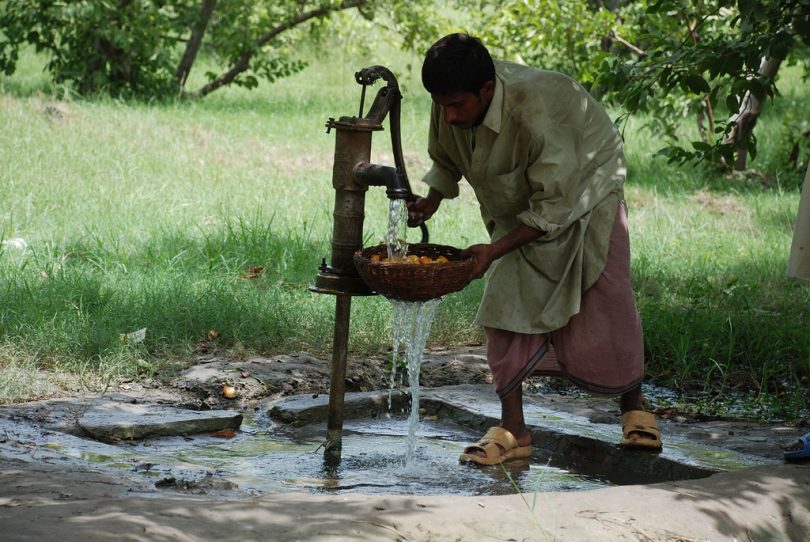This story was produced with the valuable assistance of our local counterparts Shah Nawaz Shinwari, Akhtar Aabii Abbas and Muffariq Shah
Pakistan will run out of water in seven years, an official government report has warned.
The Pakistan Council of Research in Water Resources’ (PCRWR) report in 2016 stressed the urgency for immediate government action to address the crisis of water scarcity.
In a report released to mark World Water Day on March 22, international NGO Water Aid listed Pakistan among countries that have the highest number of people who are unable to get clean water within a half-hour trip.
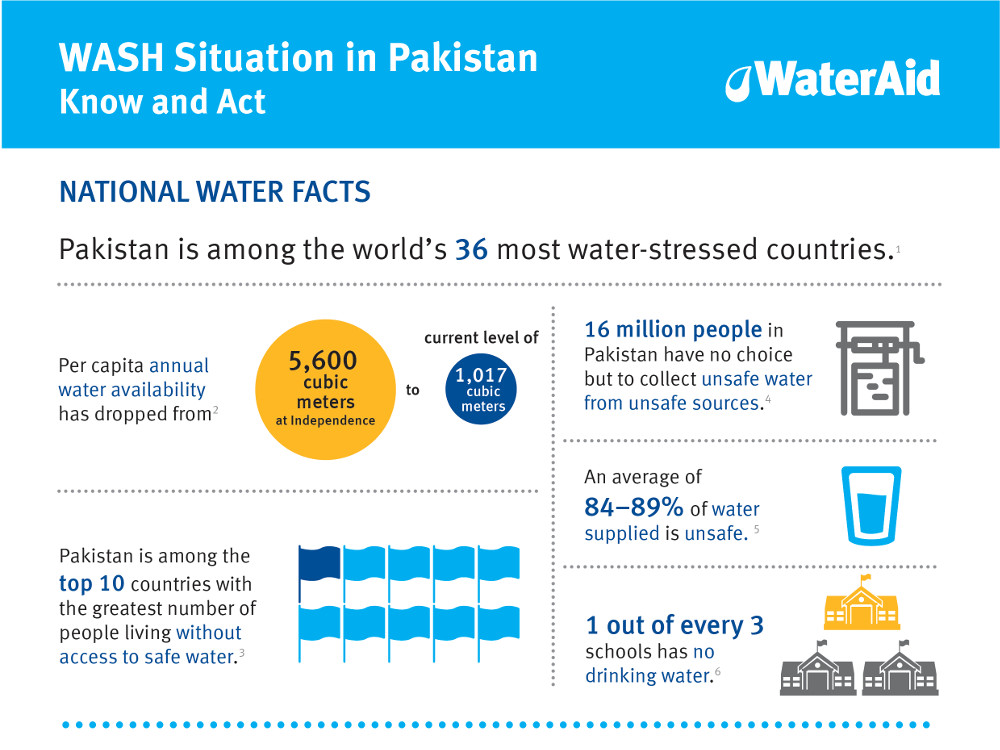
From State of the World’s Water 2018: The Water Gap
The report came ahead of the United Nations’ Sustainable Development Goal 6 review this July, which aims to deliver water and sanitation to everyone, everywhere by 2030.
In Landi Kotal, a small town in Pakistan’s north near the Khyber Pass on the Afghanistan border, a lack of infrastructure and an ongoing drought has left residents hours away from freshwater.
Women must trek up to three kilometres across rough terrain to retrieve water from a local well, carrying 25 litre pots on their heads.
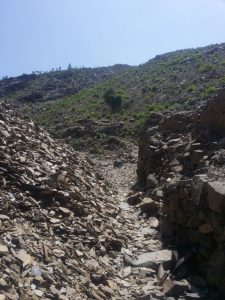
In Landi Kotal, the path to fresh water is difficult. (Photo: Shah Shiwari)
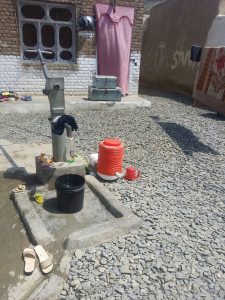
Hand pump at Landi Kotal. (Photo: Shah Shiwari)
Resident Mujahid Shinwari, 25, said the situation is dire and the people of Landi Kotal have lost faith in governing bodies.
“Member of National Assembly (MNA) Senators, who are representative of the area, and political administration take no notice of the issue,” Mr Shinwari said.
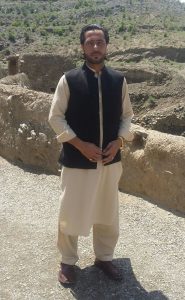
Local football player Mujahid Shinwari – 25 years old. (Photo: Shah Shinwari)
“We request our elders, MNA, Senators and political administration to assist us and help solve our issues regarding water.”
The local administration last year promised free and accessible drinking water via water tankers closer to home, but residents have complained that these facilities are being controlled and exploited.
Tanker owners force residents to pay for the water, claiming the money they receive from the local administration is not enough to cover the cost of fuel travelling to the remote area.
“We face great, great problems in getting water for our daily needs,” Mushtaq Shinwari, a local health technician said.
“Neither the government nor Political Administration has done anything, and so to the Member of National Assembly.”
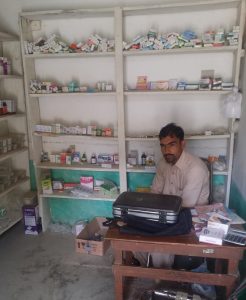
Health technician Mushtaq Shinwari- 30 years old. (Photo: Shah Shinwari)
The water shortage is exacerbated by Pakistan’s reliance on agriculture, which accounts for 20.9 per cent of the country’s GDP.
Pakistan has the largest irrigation system in the world and the International Monetary Fund (IMF) estimates that 90 per cent of its water resources are used for agricultural purposes.
However, 50 per cent of this water is lost due to seepage, misuse, percolation, and defects in the irrigation, storage and distribution systems.
This massive amount of wastage combined with ongoing drought and a rapidly increasing population has left Pakistan dangerously close to experiencing chronic water stress.
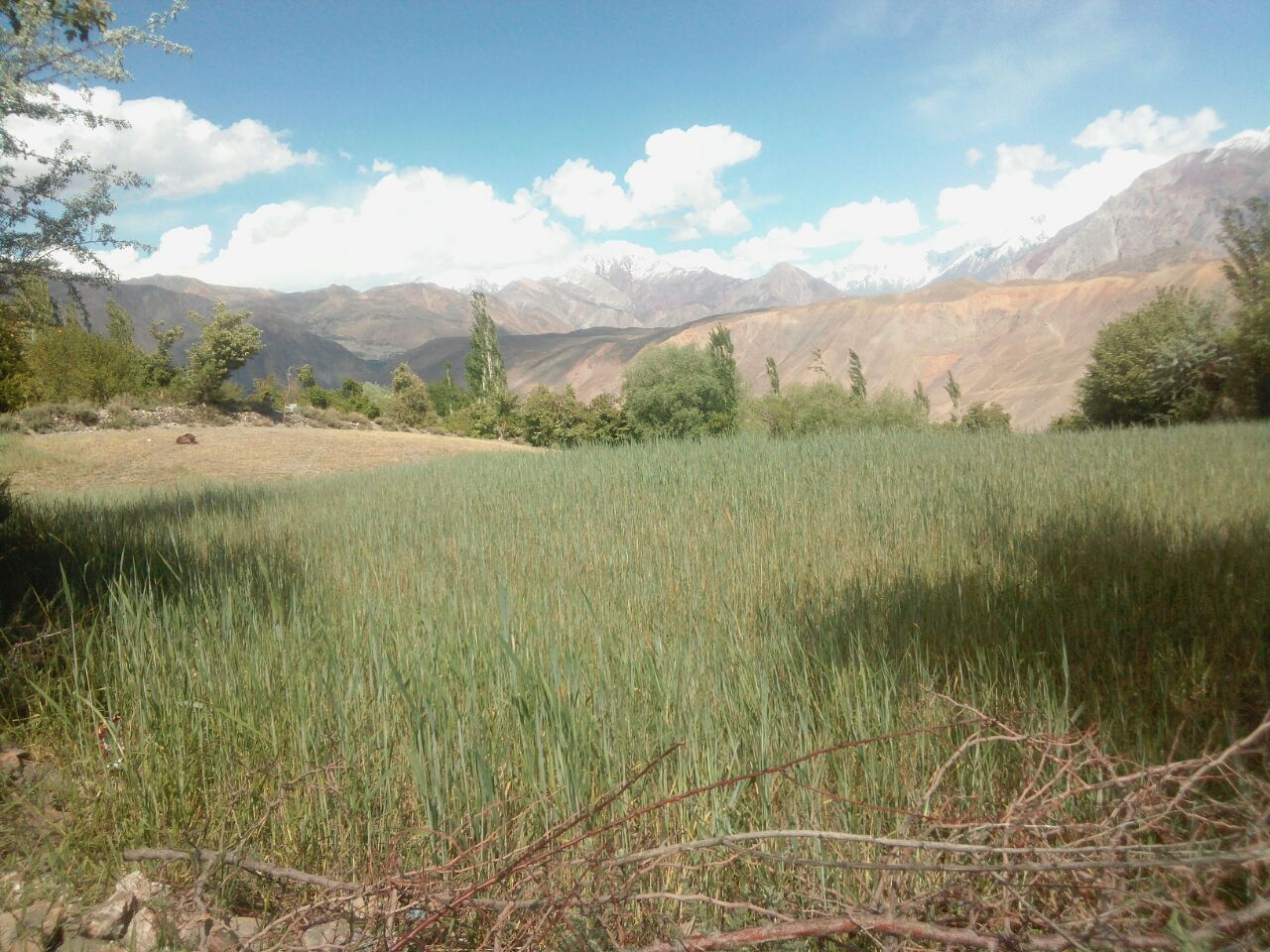
Akhtar Aabii Abbas says water shortages forced his family to harvest early with a huge loss. (Photo: Akhtar Aabii)
The Pakistani government recently took its first significant step to address the ongoing crisis.
In April, the Council of Common Interests (CCI) unanimously approved the country’s first ever National Water Policy (NWP), 13 years after it was first proposed in 2005.
The new policy’s primary objective is to acknowledge the growing water crisis and provide guidelines and tools for a sustainable future.
The first draft promises to increase the development budget for water resources from 3.7 to 10 per cent by 2019, and 20 per cent by 2030, in an attempt to minimise wastage and improve fresh water access.
Further, it promises to remove supply charges by establishing “pricing at the delivery point” for consumers, and plans for a water authority to be established in each province to closely monitor the policy’s progress, development and needs.
However, for the people of Landi Kotal the new water policy is simply “words in the newspapers”, and whether it can truly change the lives of those living in rural Pakistan is still yet to be seen.

